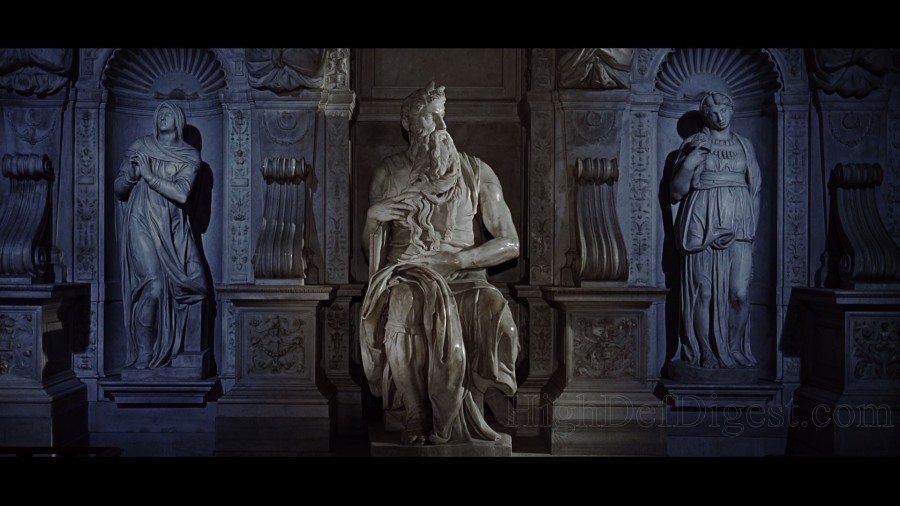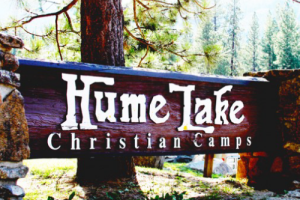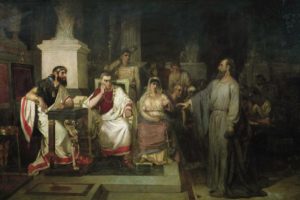“Because of you,” spoke the old friend of God, trembling, holding back heavy tears as he looked out over a sea of remorseless faces, “Because of you,” he spoke, perhaps with frank shock and bewildered grief, “Because of you the LORD became angry with me.” (Deut. 1:27)
.
Moses
These words are among the first of the last sermon of the humblest man of his time: Moses. His text, biblical history to date. His congregation, the heirs of God’s old promise. His pulpit — his stomach twisted to think — his pulpit was Moab.
.
Chief historian of and commentator on God’s great works, Moses remembered arriving in Moab some 38 years ago where the “faithless generation” had jumped ship and pledged allegiance Baal just two years after their rescue from Egypt. At the same site, 38 years later, a weary and time-worn Moses looks out at his people, playing back in his mind for the final time the unbelievable mercy and power of God and the unbelievable grumbling of his people. Perhaps he remembered an aggravated prayer from years ago, “What have I done to displease you that you put the burden of all these people on me? … If this is how you are going to treat me, please go ahead and kill me — if I have found favor in your eyes.” (Num. 11:11,15)
.
Or perhaps the prayer was sweeter than that. He preaches on, “What other nation is so great as to have their gods near to them the way the LORD our God is near us whenever we pray to him?” (Deut. 4:7)
.
I wonder if Israel felt the weight of guilt they ought-to-have, costing Moses to lose his share in his friend’s promise. I imagine the sunken spirit of a poor, honest man hoping to surprise his wife with a diamond, only to find his child had flushed it down the toilet in a moment of defiant tantrum.
.
As Israel’s burden-bearing prophet, and he had to continue his sermon, “that you may live and may go in and take possession of the land the LORD, the God of your ancestors, is giving you.” (4:1) I wonder if he had to practice what he preached: “Do not covet.” What resolute strength he must have had.
.
Eventually he would say, “The LORD your God will raise up for you a prophet like me from among you, from your fellow Israelites,” adding, perhaps for the prophet’s sake, “You must listen to him.” (18:15)
.
Jesus
.
This prophet came and would one day lament, “Jerusalem, Jerusalem, you who kill the prophets and stone those sent to you, how often I have longed to gather your children together, as a hen gathers her chicks under her wings, and you were not willing.” (Luke 13:34) This prophet, as world-weary as Moses but more humble, would chose to be burdened by his people: “Come to me, all you who are weary and burdened, and I will give you rest. Take my yoke upon you and learn from me, for I am gentle and humble in heart, and you will find rest for your souls.” (Matt. 11:28-29)
.
Commenting on this ministry of bearing, Bonhoeffer writes, “The burden of men was so heavy for God Himself that He had to endure the Cross… But He bore them as a mother carries her child, as a shepherd enfolds the lost lamb that has been found. God took men upon Himself and they weighted him to the ground, but God remained with them and they with God.”
.
So Jesus, bearing the burden of his people, inherited the wages of their grumbling: unjust condemnation and the promise deferred. Like Moses, Jesus was “commended for their faith, yet [neither] of them received what had been promised.” (Heb. 11:39)
.
This Lent, to help you meditate on the suffering of Jesus, think of Moses, the first great leader of God’s people who suffered unjustly at the hands of his faithless people.





Leave a Reply
Your email is safe with us.